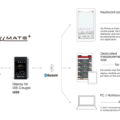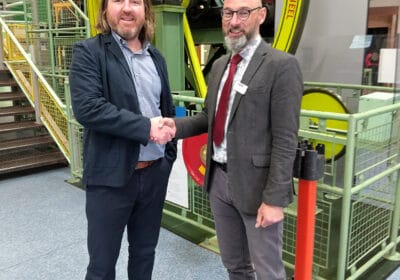Ankush Malhotra, President of connected reliability specialist Fluke Reliability, says that UK manufacturers don’t need to wait for economic conditions to change to benefit from taking a more proactive approach to maintaining their machinery.
As my colleague Aaron Merkin and I predicted at the start of 2024 in Fluke Reliability’s forecast of what 2024 has in store for industry, an economic downturn and skills shortages show no sign of abating. Unfortunately, the recent announcement of a general election in July only adds to the continued uncertainty.
Surveys of the UK and US manufacturing industry show that confidence continues to be low. Economic activity in both countries’ manufacturing sectors has been contracting in April as a result of supply chain disruption in the Red Sea area accompanied by increases in prices of raw materials.
Experts agree there’s no obvious sign of light at the end of the tunnel. The OECD’s May forecast for the world economy predicts that UK GDP will grow by just 0.4% in 2024, possibly increasing to 1% in 2025. With inflation not expected to fall below the government’s 2% target, rising unemployment is likely.
Businesses could be forgiven for putting a pause on major investment as they wait to see how things play out, but that doesn’t mean they can’t take steps to adapt to the situation. Smart manufacturers are exploiting the latest advances in artificial intelligence (AI) to establish maintenance regimes which keep existing assets running for longer while minimising downtime and making the most of their skills base. All at the same time as keeping up with the sustainability targets that are a key priority for today’s businesses.
An emphasis on maintaining rather than replacing machinery is reaching new heights. At the same time, falling costs of industrial IoT devices and AI-assisted tools make it possible to monitor assets continuously.

Condition-based monitoring, coupled with AI systems that can predict possible faults by rigorously analysing the data collected by plant-wide sensor networks, doesn’t just minimise downtime and help avoid unnecessary expenditure. By keeping plants running efficiently and only replacing when necessary, a connected reliability approach boosts sustainability too.
Economic forecasts are influenced by the fact that, even with unemployment soaring, many businesses are facing skills shortages. This is an area where the same AI technology that’s optimising machine efficiency can address the challenge of replacing an ageing workforce. It doesn’t replace humans, but helps them to make faster, more effective decisions without the need for narrow, specialised skill sets.
For UK companies, a general election and prospect of a possible change of government is only adding to the reasons to take a cautious approach. It would be a brave organisation that made plans around the expected outcome, or even what’s promised by the various manifestoes. With a reliable maintenance regime based on AI, though, any manufacturer can ensure they have a sustainable base for efficient operations – whatever the future has in store.






